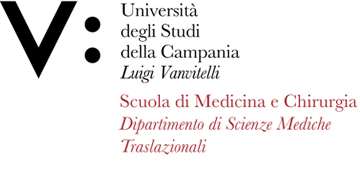Giulia RICCI
Insegnamento di EMBRIOLOGY
Corso di laurea in NURSING (INFERMIERISTICA IN LINGUA INGLESE)
SSD: BIO/17
CFU: 1,00
ORE PER UNITÀ DIDATTICA: 15,00
Periodo di Erogazione: Primo Semestre
Italiano
| Lingua di insegnamento | Lingua inglese |
| Contenuti | Prima, seconda e terza settimana di sviluppo |
| Testi di riferimento | Inderbir Singh’s |
| Obiettivi formativi | Questo corso intende fornire agli studenti in allattamento la comprensione di base dello sviluppo umano. Il corso tratterà le prime tre settimane di vita dell'embrione che sono fondamentali per comprendere l'organogenesi. Il sistema e gli organi principali saranno trattati con specifico riferimento ai loro sviluppi fisiologici e alle principali malformazioni che possono verificarsi. |
| Prerequisiti | Lo studente deve conoscere la struttura e funzione della cellula, che fanno parte del corso di Biologia. |
| Metodologie didattiche | Gli studenti riceveranno lezioni regolari sui temi dell'embriologia. Inoltre agli studenti verrà insegnato come costruire una presentazione e dovranno presentare di fronte alla classe su un tema di loro scelta. |
| Metodi di valutazione | La valutazione della competenza degli studenti si basa sia sulla prova scritta che orale. La prova scritta consiste di due parti atte a valutare la capacità dello studente di riconoscere i tessuti istologici e la conoscenza di base della embriologia . L'esame scritto consiste di trenta domande a scelta multipla in cui lo studente ha trenta minuti in totale per rispondere. Le domande di embriologia riguardano gli aspetti fondamentali dello sviluppo embrionale e fetale, nonché le malformazioni e malattie. Le domande saranno tanto specifiche per valutare la conoscenza di base dell’argomento. Ciò significa che lo studente deve conoscere gli steps chiave dalla fecondazione alla formazione dell’embrione e lo sviluppo di tutti i sistemi, le malformazioni più rilevanti e le malattie del feto e della madre. Per passare il test scritto, lo studente deve ottenere un punteggio di almeno 24 (1 punto per ogni domanda esatta, 0 per sbaglio). L'esame orale copre tutti gli aspetti della teoria dell'istologia e dell'embriologia. Lo studente deve essere in grado di discutere, collegare e analizzare i diversi argomenti. Inoltre, lo studente deve avere una profonda conoscenza delle malformazioni più comuni ed essere in grado di connettere lo sviluppo fisiologico con le malattie. Al fine di testare l'acquisizione di questa capacità allo studente sarà chiesto di risolvere semplice problemi “clinical oriented”, ad esempio riconoscere una malformazione basata sulla manifestazione clinica, ecc. Il voto finale è espresso in 30/30 dove 18 rappresenta il minimo e 30 il massimo ed è stabilito durante l'esame orale, mentre la prova scritta dà solo l'accesso alla parte orale dell'esame. |
| Altre informazioni | I libri e tutto il materiale (comprese le lezioni di diapositive) sono forniti come ebook dalla biblioteca universitaria, il link sarà fornito agli studenti durante la prima lezione del corso |
| Programma del corso | Prima settimana di sviluppo: dall'ovulazione all'impianto: cambiamenti negli spermatozoi nella femmina |
English
| Teaching language | English Language |
| Contents | First, second and third week of development |
| Textbook and course materials | Inderbir Singh’s |
| Course objectives | This course intends to provide to the students of nursing the basic understanding of human development. The course will cover the first three weeks of embryo life which are fundamental to understand organogenesis. The main system and organs will be treated with specific reference to their physiological developments and the main malformation that can occur. |
| Prerequisites | The student should have knowledge of the structure and function of the cell, which are part of the biology course. |
| Teaching methods | The students will receive regular lectures on the embryology topics. Moreover the students will be taught how to build a presentation and will have to present in front of the class on a topic of their choice. |
| Evaluation methods | Evaluation of student proficiency is based on both written and oral test (viva voce). The written test is meant to evaluate the student’s basic knowledge of embryology. The written exam consist of thirty multiple choice questions in which the student has thirty minutes in total to answer. Embryology questions cover the basic aspects of embryo and fetus development as well as malformation and diseases. The questions will be as specific to evaluate the basic knowledge of the topic. This means that the student must know the key steps from fertilization to embryo and the development of all the systems, the most relevant malformations and disease of the fetus and the mother. In order to pass the written part of the exam and access to the viva voce, the student must obtain a score of at least 24 (1 point for each exact question, 0 for wrong). The oral exam covers all the aspects Embryology including malformation. The student should be able to discuss on the topic and be able to connect and analyze the different subjects. |
| Other information | Book and all material (including lectures slides) are provided as ebook by the University Library, the link will be provided to the students during the first lecture of the course. |
| Course Syllabus | First week of development: from ovulation to implantation: changes to the sperms in the female |








